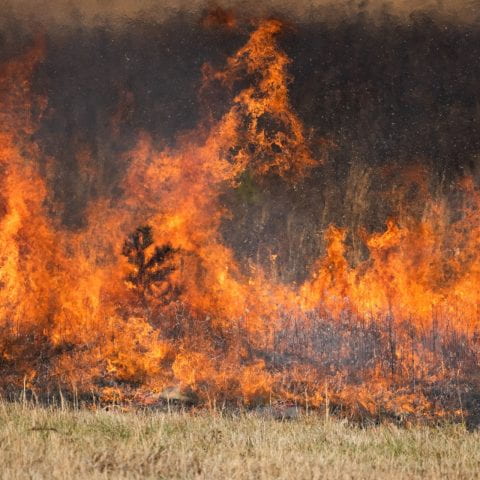Our Master’s Program publishes an annual magazine to provide students, alumni, prospective students, donors, advisors, and friends with a beautiful annual summary of our work. In this year’s magazine we focus on engagement. To have the greatest impacts, we must reach beyond classroom walls to work directly with communities and organizations in New York and around the world.
Scammers, beware! Cornell researchers created a multi-step protocol to detect and remove fake data created by bots and humans attempting to enroll in online research studies, thus preventing biased results and unwarranted monetary compensation to bad actors. The protocol is the first specifically designed for data collected in rural communities, for which existing filtering protocols are not adapted. Researchers developed the protocol when a health improvement research study was forced to move online during the pandemic. The study, in collaboration with Texas A&M AgriLife Research…
The first thing farmer Erica Sawatzke does every morning is check on her turkeys. For generations, Sawatzke and her family have run Oakdale Farm in Minnesota. They usually have tens of thousands of turkeys on their farm at a time. But last year, the day before Thanksgiving, when Sawatzke checked on the turkeys, about 40 had died. She walked around the barn, and noticed telltale signs of illness in other turkeys. They were not eating or drinking…
From introducing reusable takeout containers to Cornell’s dining facilities to reducing laboratory dependence on fossil fuels, the President’s Awards for Employee Excellence celebrated these and other achievements Nov. 19 in Barton Hall. The annual ceremony honored 20 staff members and four teams across eight award categories, highlighting the exceptional contributions of Cornell staff and faculty to the university. With more than 150 nominations recognizing nearly 250 people, the program set a record for participation and recognition…
Rocky and Ren Hazelman run a chicken farm in West Milford, N.J., about 10 miles south from the Jennings Creek wildfire along the state’s border with New York. Their 2,000 chickens require about 150 gallons of water daily, and the couple usually has no trouble collecting the needed rainwater for the job. But that is no longer possible: An extraordinarily dry fall has brought some of the worst drought conditions in the region in decades. The weather extremes caused by global warming, which are making it harder for the Hazelmans to tend to their flock, are the same ones draining reservoirs and sparking wildfires across the Northeast, like the 5,300-acre Jennings blaze, which is now mostly contained, down the road from their…
For decades, public health systems in many parts of the world have been under-equipped. In response, government and partner organizations are working to ensure integrated and adaptive systems, and to expand the skilled workforce to meet growing demands. Universities have long been key partners in these efforts to strengthen public health systems, focusing on public health education, workforce capacity building, and applied and engaged research and practice for discovery, innovation, and health impacts. “Since our founding, Cornell Public Health has made a commitment to strengthening public health systems by designing an engaged public health…
For the first time, scientists have tracked the dispersion of the Oropouche virus in the Brazilian Amazon region, an important first step to control future outbreaks of a disease with more than 100,000 reported cases since the 1960s The researchers followed a new...
Residents of Southside, a historically Black community that lies along Six Mile Creek in Ithaca, now live in an area recently recategorized as a “special hazard flood zone” by the Federal Emergency Management Agency. “When we get weeks of rain, people’s basements are flooding. If the creek overflows, it floods,” said Chavon Bunch, executive director of Southside Community Center, a neighborhood institution. “Long term, climate change is only getting worse. “We are certainly looking in horror at our friends in Asheville and the surrounding areas as they are experiencing such devastation from flooding that could only get worse as the hurricanes keep coming…
Cayuga Health is proud to announce the upcoming launch of its Center for Health Equity Transformation on October 1, 2024 The health system is on a mission to improve health equity in all of the communities it serves in the Southern Tier of New York State The Center...
Medicaid and health systems are playing a growing role in providing housing and other services to people experiencing homelessness, investments that could bolster – or eventually overtake – existing governance structures, new Cornell research finds As of August...
Faculty and staff within Cornell’s Department of Public & Ecosystem Health have been funded by the U.S. Centers for Disease Control and Prevention’s (CDC) National Center for State, Tribal, Local, and Territorial Public Health Infrastructure and Workforce to help strengthen the public health system in the United States. As part of the National Partners Cooperative Agreement, the recipient organizations will receive a part of the $176 million in funding for the first year of a five-year-cycle. “This partnership is critical because it amplifies our collective impacts on pressing public health challenges in New York State and around the nation,” says Dr. Alexander Travis, director of Cornell Public Health and founding chair of the Department of…
Fruit bats generate more diverse antibodies than mice, but overall have a weaker antibody response, according to a new study published September 24th in the open-access journal PLOS Biology by Dan Crowley from Cornell University, USA, and...












